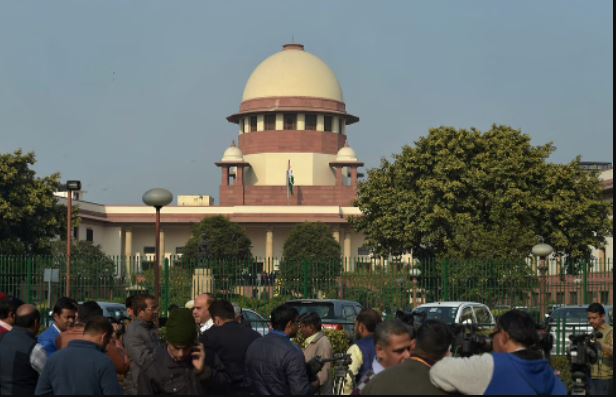
Supreme Court Decision: Thousands of cases regarding ownership of property are pending in the courts. In one such case, an important decision (Supreme Court Verdict) has been given by the Supreme Court. The High Court has said an important thing regarding property ownership rights. In its decision, the court has clarified what is required to establish ownership rights over ancestral property.
If you also own any ancestral land or house, then this news is useful for you. The Supreme Court has given an important decision regarding the ownership rights of any property.
The Supreme Court has said that whether the entry in the Revenue Record is rejected or not, it does not make any difference to its ownership rights. The decision on ownership of that property will be decided by the competent civil court only.
A division bench of High Court Justice MR Shah and Justice Aniruddha Bose has said that mere entry in the revenue record does not confer title to the property to the person whose name is mentioned in the record. The bench said that entry in property revenue records or Jamabandi has only a ‘financial purpose’ such as payment of land revenue. No ownership rights are acquired on the property on the basis of such entry.
Mutation means transfer of property
Vikas Badhawan, CFO of Housing.com, says that mutation of a property or land shows that a property has been transferred from one person to another. It also helps the authorities in fixing the responsibility of the taxpayers. This does not give anyone ownership rights. Popularly known as ‘Dakhil-Kharij’, this process varies from state to state. Filing and rejecting is not a task that can be completed in one go. It needs to be updated from time to time.
Keep an eye on important documents
It is very important to keep an eye on important documents related to the property. This decision of the Supreme Court also indicates that before any kind of dispute arises, the person should change the name in mutation. This decision will provide relief to those people who have not changed their name immediately due to mutation, but it is not appropriate and it may take time in property dispute.
Important decision of Supreme Court on ancestral property also
The Supreme Court, while rejecting a petition filed 54 years ago in another case related to ancestral property, said that if the head of the family sells the ancestral property to repay the family debt or for legal needs, then the son or other Shareholders cannot challenge it in court. The Supreme Court said that once it is proved that the father has sold the property for legal needs, then the shareholders cannot challenge it in the court. In this case, a petition was filed on behalf of the son against his father in 1964. Both father and son were no more in this world by the time the matter reached the Supreme Court. But the heirs of both continued the matter.
The head of the family has these special rights
The most senior man in any family is the doer. If the eldest male dies, then the one who is senior after him automatically becomes the Karta. However, in some cases it is declared by will. As we said, in some cases it is no longer a birth right.
This happens when the current Karta i.e. the head of the family nominates someone else to be the Karta. He can do this in his will. Apart from this, if the family wishes, it can unanimously declare one person as the doer. Many times the court also appoints the Karta on the basis of some Hindu law. But, this happens in very few cases.
There is a provision in the law
The bench of Supreme Court Justices AM Sapre and SK Kaul said that Article 254 of the Hindu Law has a provision regarding sale of property by the father.
Article 254 (2) provides that the Karta i.e. the head of the family can sell the movable/immovable ancestral property. He can sell the share of his son and grandson to repay the debt but this debt should also be ancestral.
This debt should not have arisen through any unethical or illegal act.
Under what circumstances can ancestral property be sold?
Property can be sold to repay ancestral loan.
When there is government liability on the property, the property can be sold.
Property can be sold to support family members.
Sons and daughters have the right to sell bechi for marriages, family functions or funerals.
The property can be sold to defray the expenses of the ongoing litigation.
In case of serious litigation against the head of a joint family, the property may be sold for his defence.





